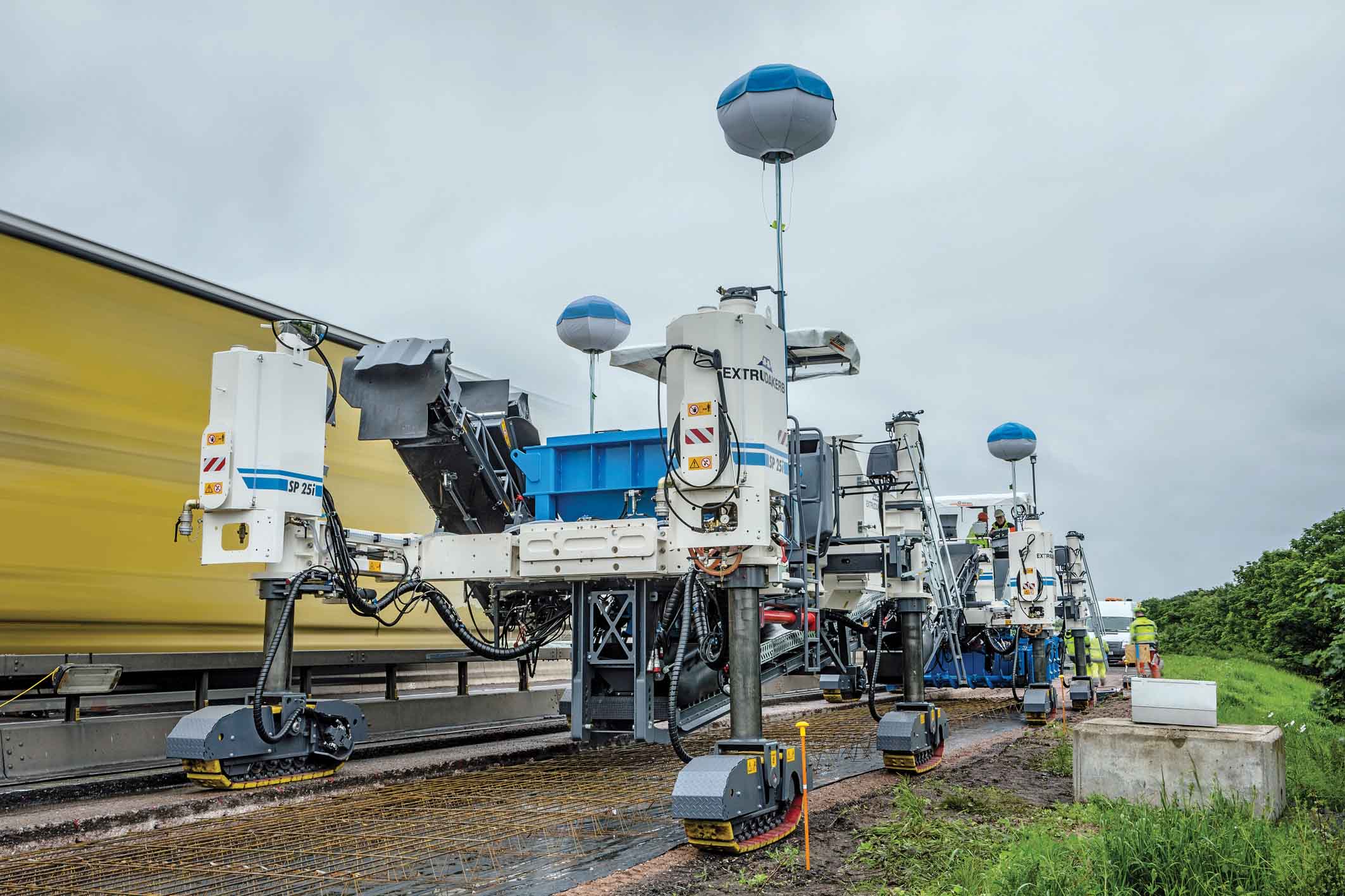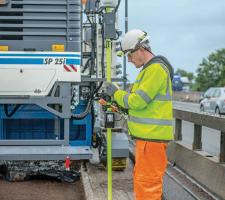
Stick a pin in a world map, and chances are that wherever it pierces, a road construction or rehabilitation project will be underway.
Globally, developed, but ageing infrastructure, is being upgraded, while in emerging economies new roads are seen as vital links to prosperity.
To carry out this work a wide variety of equipment is required, including earthmovers; rock crushers; asphalt and concrete plants; pavers, and compactors. Road rehabilitation also requires specialist equipment.
For example, in the UK, equipment from German company
With an overall length of 373km, the M6 connects the M1 in central England with Carlisle, near the Scottish border. It is the longest and one of the most heavily-trafficked motorways in the country.
A Wirtgen SP 25i compact slipform paver along with a Wirtgen ISF 25i (independent side feeder) paved the slab near Cannock, central England. The Highways Agency, customer for the construction project, wanted a section of the service lane to be upgraded for use as an additional traffic lane.
The main task of the consortium comprising Carillion (contractor of the Highways Agency) and construction company Extrudakerb was to replace the existing reinforced concrete slab with asphalt surfacing to bring the new traffic lane onto a level with the adjacent pavement and create a homogeneous concrete pavement.
The project, the first of its kind in the UK, was carried out in selected time frames and in exceedingly confined conditions, and saw project manager Mark Gladwell decide on a sophisticated timetable and logistics schedule.
“Such a tricky project can only be carried out with the aid of extremely sophisticated machine technology,” says Gladwell.
“It was decided to use a Wirtgen SP 25i together with a Wirtgen ISF 25i, which had been developed on the basis of the SP 25i in order to meet the project’s special requirements. Using the ISF 25i as an independent side feeder with pivotable conveyor was the only option available to assure the safety of the operator and of the workers on this confined job site while at the same time minimising the nuisance to passing traffic.”
The 16km of new roadway, some 3m wide and 300mm deep, required 14,000m³ concrete, which was delivered to the site just-in-time by
At the job site, concrete was transferred into the hopper of the ISF 25i and from there to the slab paving kit of the slipform paver via two synchronised conveyors.
The time frame available for working was never more than six hours, and as a result around 32m³ of concrete/hour was paved, making almost 200m³ per six-hour shift. The work was undertaken in 12 consecutive shifts.
Other materials needed for the project included some 300tonnes of reinforcement as well as 25,000 tie bars and 3,000 dowels, dowel bars and curing material.
Wirtgen’s Auto Pilot Field Rover, which won the bauma Innovation Award 2013, and which was fitted in the SP 25i, was also used on the project.
“Paving concrete on narrow roads or individual traffic lanes is an ideal job for our Auto Pilot Field Rover,” says Martin Datzert, sales and applications specialist for slipform pavers at Wirtgen.
Dom Egan, site manager, Extrudakerb, says: “Another decisive advantage of the Auto Pilot Field Rover was that we did not have to install stringlines, as the Highways Agency had prohibited the use of posts drilled into the ground for attaching the stringlines. Such posts could have damaged underground cables.
“What’s more, the Auto Pilot allows the machine and job site to be set up more speedily, maximising the time frame available for paving the concrete. A decisive factor in view of the short time frames specified for the M6.”















